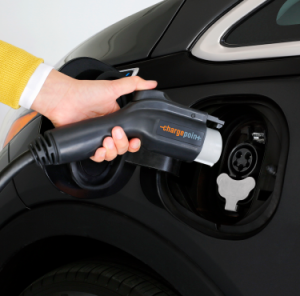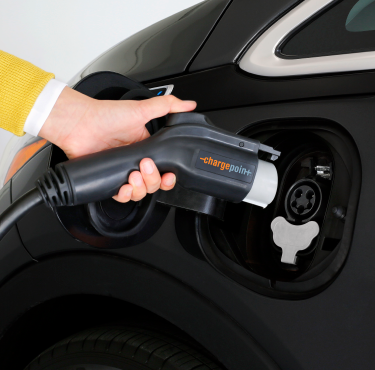As electric vehicles (EVs) become increasingly popular, the demand for home charging solutions continues to rise. Among the many options, hardwired EV chargers stand out for their superior performance, safety, and convenience. This comprehensive guide explores the definition, benefits, comparison with plug-in chargers, installation process, top models for 2025, safety considerations, and how to choose the perfect hardwired EV charger for your needs.

What is a Hardwired EV Charger?
A hardwired EV charger is a charging device directly connected to your home’s electrical system via a dedicated circuit. Unlike plug-in chargers, which connect through a standard outlet (e.g., NEMA 14-50), hardwired chargers require professional installation by a licensed electrician. This direct connection enables higher power output, typically 48 amps or more, significantly reducing charging times. For instance, a hardwired charger can add about 44 miles of range per hour for a Tesla Model Y, compared to 37 miles for a plug-in charger.
Hardwired chargers are typically Level 2 charging stations, suitable for both residential and commercial use, offering faster charging than Level 1 chargers (standard 120V outlets). They connect to the main electrical panel through a dedicated circuit, ensuring stable and efficient power delivery.
Benefits of Hardwired EV Chargers
Hardwired chargers offer significant advantages in performance and safety, making them a top choice for many EV owners.
Faster Charging Speeds
Hardwired chargers support high power outputs, typically ranging from 3.8 to 12 kW, surpassing the 9.6 kW limit of most plug-in chargers. This results in shorter charging times, ideal for EV owners needing quick charging for long trips. According to ChargeHub, hardwired chargers are particularly suited for rapid charging needs.
Enhanced Safety
By connecting directly to the electrical system, hardwired chargers eliminate extra connection points, reducing the risk of wire wear, overload, or electrical shock. Many models include built-in ground-fault circuit interrupter (GFCI) protection to prevent electrical shorts and surges. Qmerit highlights that hardwiring avoids safety risks associated with improper outlets, such as those not compliant with the National Electrical Code (NEC).
Increased Home Value
Installing a hardwired charger can add value to your home. As the EV market grows, home charging infrastructure becomes a key selling point for buyers. Lectron EV notes that a home charging station may boost property resale value, especially in regions with high demand for EV infrastructure.
Hardwired vs. Plug-In EV Chargers
Understanding the differences between hardwired and plug-in chargers is crucial when making a decision. Here’s a detailed comparison:
|
Aspect |
Hardwired Charger |
Plug-In Charger |
|---|---|---|
|
Power Output |
Up to 19.2 kW (48 amps, 240V) |
Up to 9.6 kW (40 amps, 240V) |
|
Charging Time |
Adds 44 miles/hour (Tesla Model Y) |
Adds 37 miles/hour (Tesla Model Y) |
|
Safety |
Safer, with built-in GFCI, fewer risks |
Outlet quality varies, may pose risks |
|
Installation Cost |
$300–$3,300, requires electrician, possible panel upgrade |
Low if 240V outlet exists, otherwise $1,500 for outlet |
|
Flexibility |
Fixed, difficult to move or upgrade |
Portable, easy to upgrade or relocate |
Installation Differences
Hardwired chargers require a licensed electrician to connect the charger to a dedicated circuit, often involving wiring from the main electrical panel to the charger location. This ensures safety and compliance but increases installation complexity and cost. In contrast, plug-in chargers can be installed simply by plugging into an existing 240V outlet (e.g., NEMA 14-50 or 6-50), as noted by HelloTech. If no outlet exists, installing one can cost up to $1,500.
Cost Differences
The equipment cost for hardwired chargers ranges from $500 to $2,000, with installation fees varying from $300 to $3,300 depending on the scope of work and potential panel upgrades, according to Qmerit. Plug-in chargers are more affordable if a suitable outlet is already available (around $500 for the charger), but adding a new outlet can cost up to $1,500.
Flexibility and Portability
Plug-in chargers offer greater flexibility, making them ideal for renters or those planning to move, as they can be unplugged and taken along. Hardwired chargers, however, are fixed installations, best suited for homeowners planning to stay long-term. Peak EV Solutions notes that hardwired chargers cannot be moved without professional electrician intervention.
Installation Process
Installing a hardwired EV charger requires professional expertise to ensure safety and compliance with local regulations. Here’s a typical installation process:
-
Electrical Assessment: An electrician evaluates your home’s electrical system to confirm the panel can support the charger’s power requirements. The panel typically needs at least 10 amps more capacity than the charger, e.g., a 60-amp panel for a 48-amp charger.
-
Permitting: Depending on local regulations, you may need to obtain installation permits, often handled by the electrician.
-
Wiring: A dedicated circuit is run from the electrical panel to the charger location, using copper wiring for durability and efficiency.
-
Charger Installation: The charger is mounted on the wall and connected to the circuit.
-
Testing and Verification: The electrician tests the system to ensure the charger operates correctly and meets safety standards.
Installation costs vary by region and job complexity, typically ranging from $300 to $3,300, excluding the charger cost. Upgrading the electrical panel can add thousands to the cost. Many regions offer federal, state, or local utility rebates, and Qmerit recommends contacting your utility provider for details.
Top Hardwired EV Charger Models for 2025
When choosing a hardwired charger, consider power output, cable length, smart features, and durability. Here are some top models for 2025, based on recommendations from Car and Driver and Home Depot:
|
Model |
Power Output |
Cable Length |
Key Features |
|---|---|---|---|
|
ChargePoint Home Flex |
3.8–12 kW |
23 ft |
Wi-Fi, app control, compatible with most EVs |
|
Emporia EV Charger |
1.4–11.5 kW |
24 ft |
Load management, energy monitoring, durable |
|
Tesla Universal Wall Connector |
2.9–11.5 kW |
24 ft |
Tesla app integration, suits multi-EV homes |
|
Wallbox Pulsar Plus |
1.4–11.5 kW |
25 ft |
Smart charging, voice control, compact |
|
JSOWELL Level 2 EV Charger |
11.5 kW |
25 ft |
Weather-resistant, high output, reliable |
ChargePoint Home Flex
Known for its versatility and smart features, this charger supports both J1772 and NACS connectors, making it compatible with nearly all EVs. Its app allows users to monitor charging status and schedule charging sessions.
Emporia EV Charger
The Emporia charger offers optional load management to optimize power usage, ideal for users monitoring energy consumption. Its NEMA 4 rating ensures durability for outdoor use.
Tesla Universal Wall Connector
Designed for Tesla owners but compatible with other EVs, this charger integrates seamlessly with the Tesla app for monitoring and management, perfect for multi-EV households.
Wallbox Pulsar Plus
This compact charger supports voice control and smart charging, appealing to tech-savvy users. Its 25-foot cable offers greater installation flexibility.
JSOWELL Level 2 EV Charger
The JSOWELL charger is praised for its high power output and weather-resistant design, making it ideal for outdoor installations. Home Depot users rate it as a top choice.
Safety Considerations
Hardwired chargers are designed with safety in mind, offering the following advantages:
-
Direct Connection: A dedicated circuit reduces outlet-related risks, such as overheating or wire wear.
-
Built-In Protection: Many models include GFCI to prevent electrical shorts and surges, as noted by To The Electric.
-
Professional Installation: Licensed electricians ensure compliance with NEC standards, avoiding risks from improper wiring.
In contrast, plug-in chargers may pose risks due to inconsistent outlet quality or frequent plugging/unplugging, such as “nuisance tripping” discussed in Reddit threads.
How to Choose the Right Hardwired Charger
When selecting a hardwired charger, consider the following factors:
-
Power Needs: Choose a power level based on your daily driving range and vehicle battery capacity. Frequent long-distance drivers may need a 48-amp charger.
-
Future Compatibility: Opt for a charger with higher power capacity to accommodate future EV advancements.
-
Smart Features: Decide if you need app control, energy monitoring, or smart home integration.
-
Budget: Balance charger and installation costs with desired features; budget-conscious users may prefer mid-range models like Emporia.
-
Rebates and Incentives: Check for federal, state, or utility rebates to reduce costs, as suggested by Qmerit.
Conclusion
Hardwired EV chargers offer an efficient, safe, and reliable solution for home charging. Their fast charging speeds, enhanced safety features, and potential to increase home value make them an excellent choice for many EV owners. While the initial installation cost is higher than plug-in chargers, the long-term benefits often outweigh the upfront investment. By understanding the differences between hardwired and plug-in chargers, the installation process, top models, and selection criteria, you can make an informed decision to meet your charging needs.

